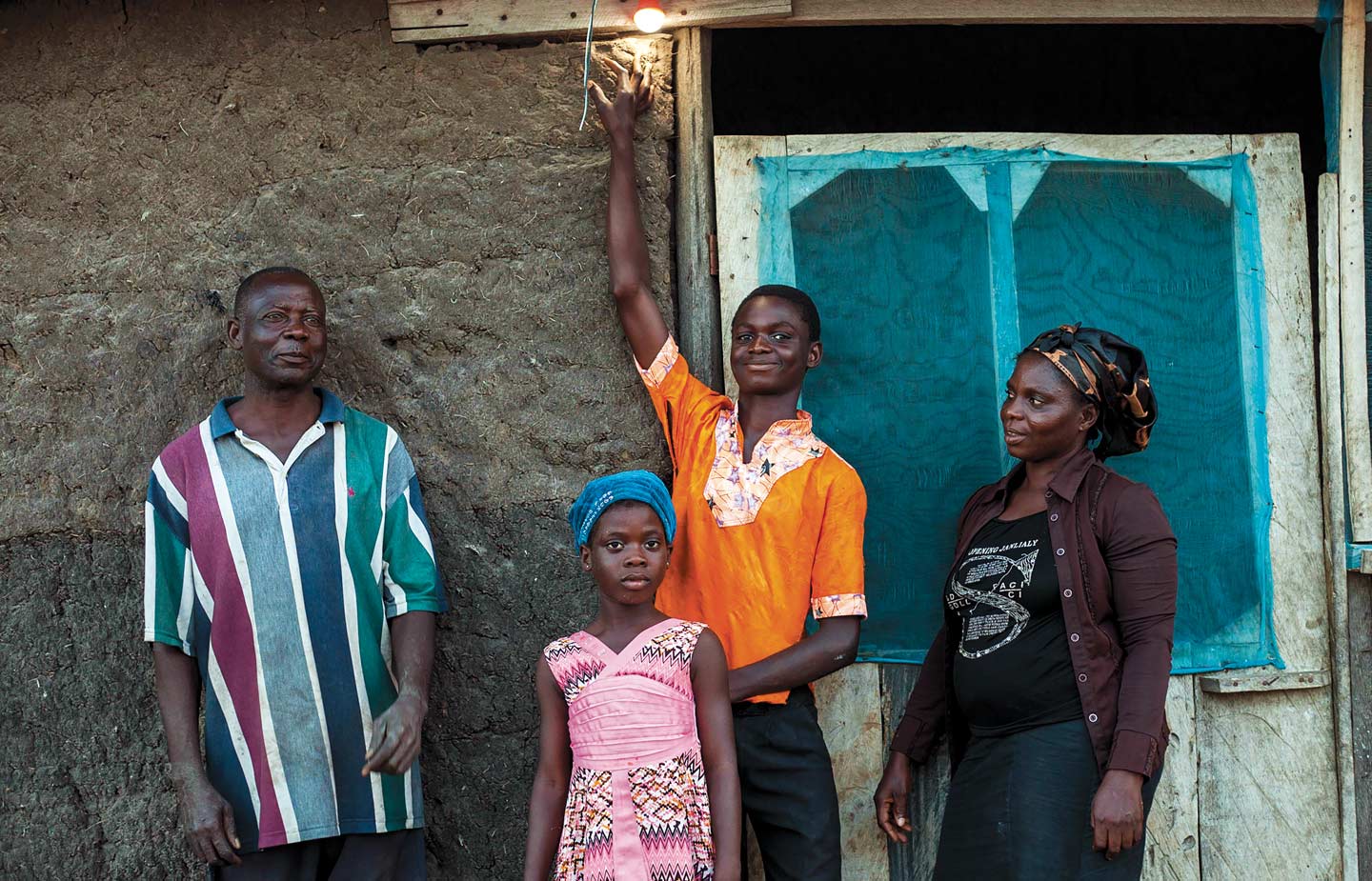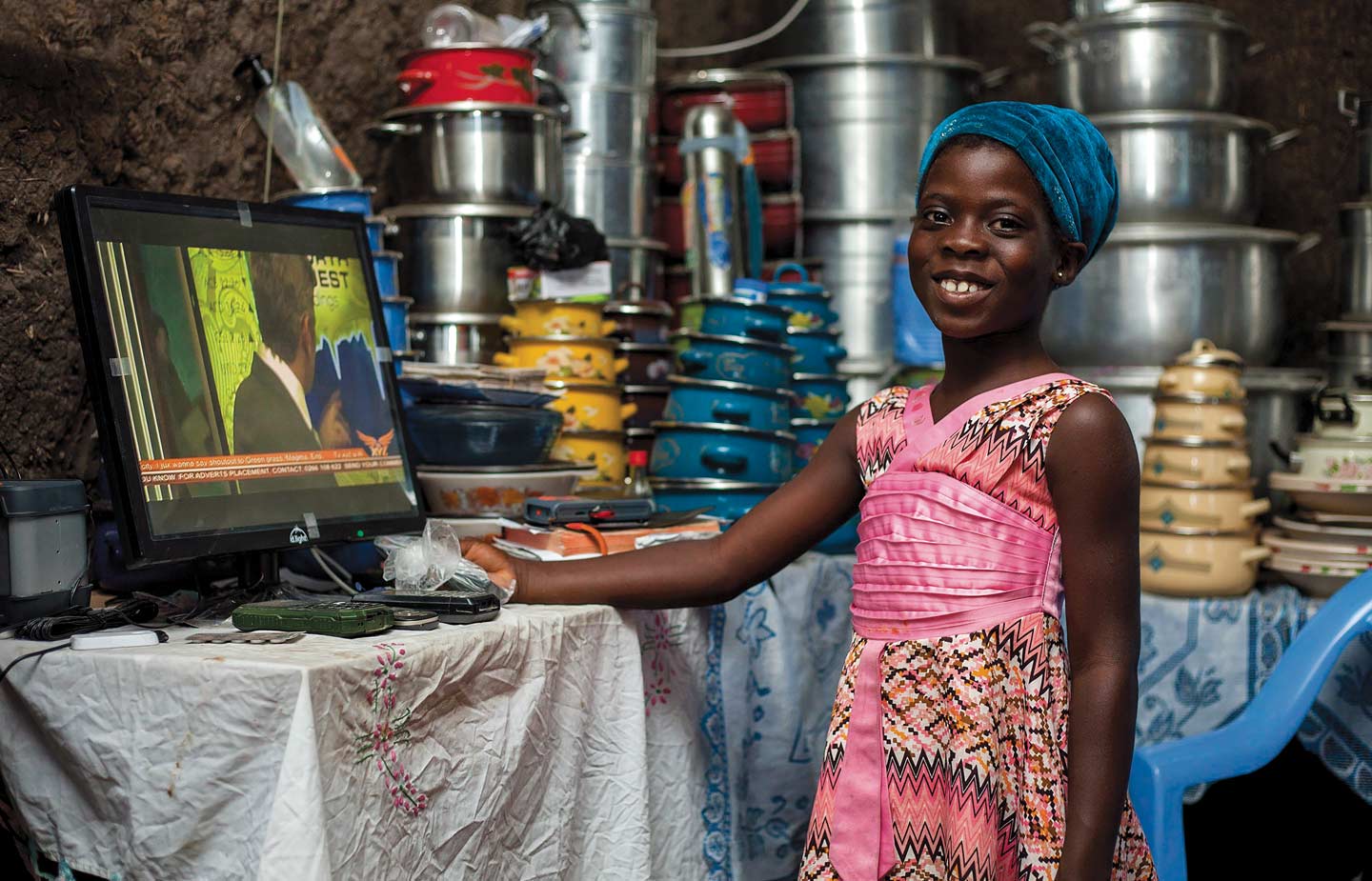On the Grid
Nate Heller ’98 is providing solar energy to underserved families throughout West Africa.
Nate Heller is ordering food at the La Gondole restaurant in Dakar’s Point E neighborhood when I reach him by phone late one afternoon.
He’s returned to town after spending the day in some remote villages in West Africa, where his company, PEGAfrica, is transforming the way people power their homes in Côte d’Ivoire, Ghana and Senegal.
Throughout the region, it’s typical for families of four or five to live in one-room mud huts, relying on one flashlight or a couple of kerosene lamps to provide light for basic activities like cooking and reading. For the hundreds of millions of people in Africa who don’t have electricity, this requires regular trips into town, where they can purchase batteries, charge their cellphones and replenish their fuel supplies.
But Heller’s company, which he co-founded and of which he serves as COO, has developed an innovative way to make those trips and their related costs unnecessary by providing home solar kits purchased through a pay-as-you-go model.
“If you live in a village and don’t have electricity, you live in the dark a lot of the time,” Heller explains.
“To power your home and to power your needs costs a lot of money because you’re always buying batteries, always paying to charge your phone. And for the amount of money that you’re spending on those things over a five-year period, you could pay for a solar kit a couple of times over.”
Heller says the major obstacle to people buying solar kits is that usually the upfront costs are too high. While people can spend a small amount of money each week on batteries over a long period of time, gathering a couple of hundred dollars at once to buy a kit isn’t possible, and getting loans is especially difficult, since they have no real credit history or collateral.
“Normal credit institutions won’t work with these customers, so we knew we needed to find a different way to make this work and to guarantee people will pay back their loans,” says Heller.
“Our solar kit has a meter inside the battery, which can temporarily shut off power if payments aren’t made on time, which essentially turns the kit itself into collateral and allows our customers to build a credit history, then purchase larger kits and products from us, like televisions and other appliances.
“So it provides a path to financial inclusion.”

